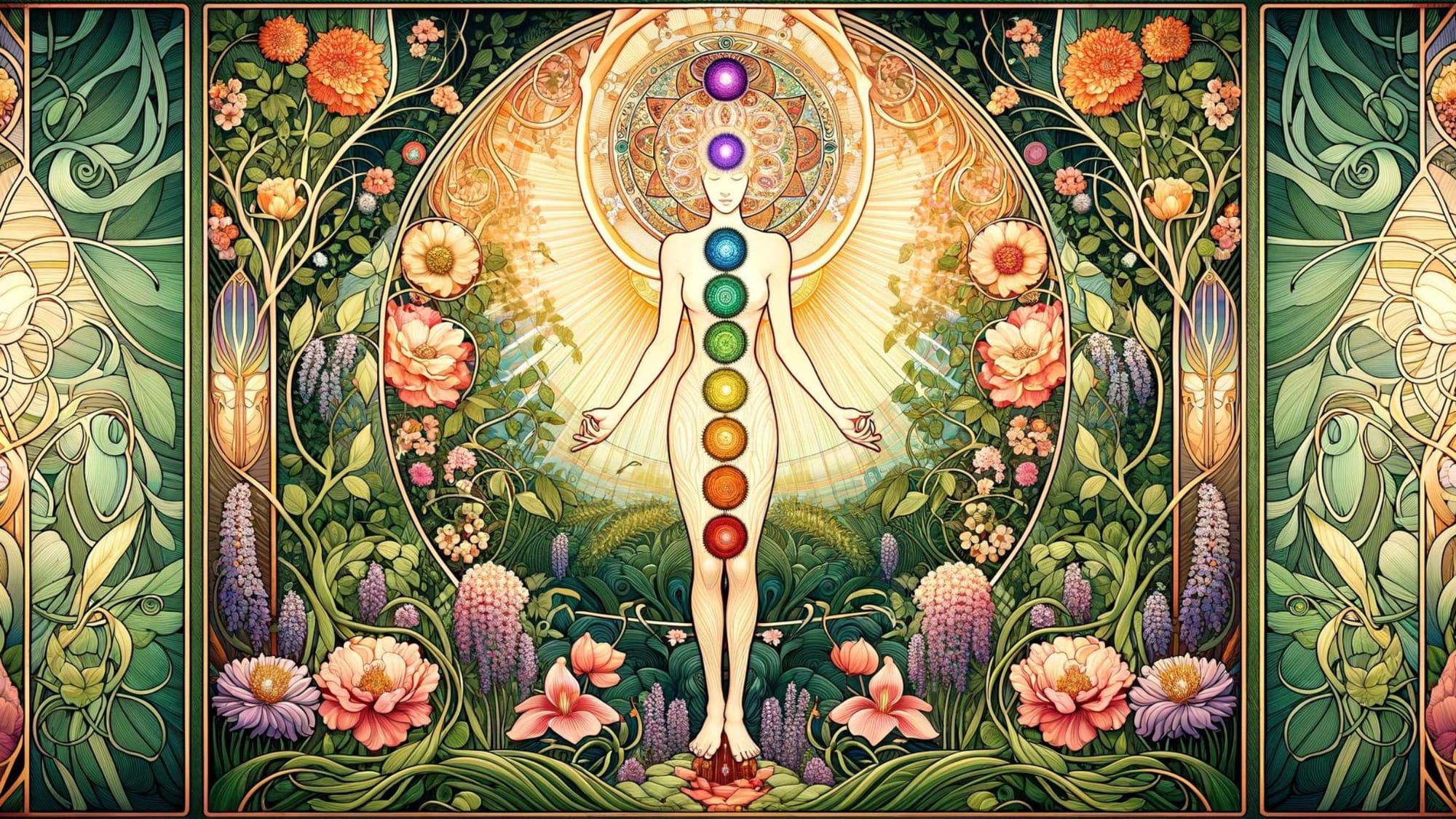German New Medicine 101: Kidneys [Part 12]

Imagine understanding your health in a way that connects your emotions directly to your physical well-being. That's the essence of German New Medicine (GNM), a holistic approach founded by Dr. Ryke Geerd Hamer. GNM reveals how emotional conflicts, such as feelings of abandonment or fears related to survival, can affect specific organs, including the kidneys.
By understanding these connections, you can recognize symptoms early and support your body's natural healing process. Let's explore how GNM sheds light on kidney health and offers practical insights for everyday life.
Table of Contents
What Is German New Medicine?
Understanding The Kidneys In GNM
Main Conflicts Affecting The Kidneys In GNM
What Is The Conflict-Active Phase In GNM?
Kidney Diseases And Emotional Conflicts Causing Them
What Is The Healing Phase In GNM?
Natural Remedies For Kidney Health
Tips For Managing Kidney-Related Conflicts
Final Words
What Is German New Medicine?

German New Medicine (GNM) is a holistic approach to health founded by Dr. Ryke Geerd Hamer. It focuses on the connection between emotional conflicts and physical diseases, positing that specific types of conflicts impact different organs in the body. GNM emphasizes understanding the root causes of illness to facilitate natural healing.
Understanding The Kidneys In GNM
In GNM, the kidneys play a crucial role in managing fluid balance and responding to emotional conflicts, particularly those related to abandonment and existence. Understanding how these conflicts affect the kidneys helps in recognizing symptoms and supporting the body's natural healing processes.
Main Conflicts Affecting The Kidneys In GNM
In German New Medicine (GNM), the kidneys are particularly affected by two main types of conflicts: abandonment and existence conflicts.
- Abandonment Conflicts: These conflicts arise from feelings of being left alone, isolated, or abandoned by loved ones.
- Existence Conflicts: These involve fears related to survival, such as concerns about one's safety, livelihood, or ability to meet basic needs.
When an individual experiences these conflicts, it triggers a biological response in the kidney-collecting tubules. During the conflict-active phase, the kidneys may start to retain water as a survival mechanism. This can lead to symptoms like swelling and changes in urine output.
Understanding these connections helps in identifying the emotional roots of kidney-related issues and supports the healing process.
Read Also:


What Is The Conflict-Active Phase In GNM?
In German New Medicine, the conflict-active phase occurs when an individual is experiencing an emotional conflict. During this phase, the body reacts biologically to cope with the perceived threat or stress.
Symptoms and biological responses during this phase:
- Increased Stress Response: The body enters a heightened state of alertness.
- Water Retention: Kidneys may retain water to conserve resources, leading to swelling.
- Urinary Changes: Reduced urine output as the body tries to retain fluids.
- Cell Proliferation: In some cases, like kidney cancer, cells may multiply in response to the conflict.
Kidney Diseases And Emotional Conflicts Causing Them

1. Water Retention
Emotional Conflict: Feelings of abandonment or isolation cause the body to retain water as a survival mechanism, thinking it needs to conserve resources.
2. Nephrotic Syndrome
Emotional Conflict: Severe abandonment or existence conflicts lead to excessive protein loss in urine, reflecting the body's response to profound insecurity.
3. Kidney Cancer
Emotional Conflict: Triggered by a profound loss, such as the death of a loved one or a significant emotional detachment, causing cells to multiply as a survival response.
4. Bladder Cancer
Emotional Conflict: Related to a territorial marking conflict, where one feels their boundaries or space is being invaded or threatened.
5. Kidney Stones
Emotional Conflict: Caused by a territorial anger conflict, often involving disputes over personal space or possessions.
6. Urinary Tract Infections (UTIs)
Emotional Conflict: Triggered by a separation conflict, where one feels forcibly separated from a loved one or important situation.
7. Polycystic Kidney Disease
Emotional Conflict: Related to multiple existence conflicts, reflecting ongoing stress about survival and safety.
8. Chronic Kidney Disease
Emotional Conflict: Caused by a persistent existence conflict, involving long-term fears about one's ability to survive or thrive.
9. Glomerulonephritis
Emotional Conflict: Linked to a self-devaluation conflict, where one feels inadequate or not good enough, affecting kidney function.
10. Kidney Failure
Emotional Conflict: Resulting from a prolonged existence conflict, where ongoing stress and fear about survival overwhelm the kidneys, leading to their decline.
11. Hydronephrosis
Emotional Conflict: Associated with a fear of not being able to “mark” or establish territory, leading to a blockage of urine flow.
12. Renal Cysts
Emotional Conflict: Related to feeling trapped or stuck in a situation, causing fluid-filled sacs to form in the kidneys.
13. Pyelonephritis (Kidney Infection)
Emotional Conflict: Triggered by anger or conflict related to "dirty" situations, leading to an infection of the kidneys.
14. Interstitial Cystitis
Emotional Conflict: Linked to feelings of vulnerability and emotional pain, often involving conflicts related to one's intimate or personal space.
15. Renal Hypertension
Emotional Conflict: Stemming from chronic fear or stress about one’s ability to survive, leading to high blood pressure in the kidneys.
Read Also:


What Is The Healing Phase In GNM?
The healing phase in German New Medicine begins once the conflict is resolved. The body shifts from a state of stress to recovery, aiming to repair the damage caused during the conflict-active phase.
Symptoms and processes in the healing phase:
- Inflammation: A natural response to repair tissue.
- Swelling and Pain: Common as tissues rebuild and heal.
- Fatigue: The body uses energy to heal, leading to tiredness.
Natural Remedies For Kidney Health

You can support and maintain healthy kidney function by incorporating these natural remedies into your lifestyle:
Dandelion Leaf: Known for its diuretic properties, it helps flush out toxins from the kidneys.
Nettle: Supports kidney function by promoting detoxification and reducing inflammation.
Corn Silk: Acts as a natural diuretic, aiding in the elimination of waste and reducing kidney strain.
Ginger: Contains antioxidants and anti-inflammatory properties that support overall kidney health.
Parsley: Helps cleanse the kidneys and promotes urine production.
Juniper: Has diuretic properties that help in flushing out toxins but should be used cautiously if kidneys are weak.
Bearberry (Uva Ursi): Known for its antimicrobial and diuretic effects, it supports urinary tract health.
Horsetail: Contains silica which supports kidney health and acts as a mild diuretic.
Cranberry Juice: Helps prevent urinary tract infections, which can benefit kidney health.
Stay Hydrated: Drinking plenty of water helps flush out toxins and supports kidney function.
Limit Sodium: Reducing salt intake helps lower blood pressure and reduces the burden on the kidneys.
Healthy Diet: Eating a balanced diet rich in fruits, vegetables, and whole grains supports overall kidney health.
Avoid Overuse of NSAIDs: Excessive use of non-steroidal anti-inflammatory drugs can harm the kidneys.
Regular Exercise: Physical activity improves circulation and overall health, benefiting the kidneys.
Tips For Managing Kidney-Related Conflicts
SUPER TIPP: EFT (Emotional freedom technique)
This simple yet effective method involves tapping on specific points on the body, linked to the meridians used in traditional acupuncture. By tapping these points while concentrating on emotional stress or pain, many find significant reductions in anxiety, stress, and physical discomfort.
Please watch the tutorial above to learn more about how you can incorporate this technique into your daily routine for enhanced well-being.
- Acknowledge Emotional Conflicts: Be mindful of feelings of abandonment, existence fears, and territorial disputes.
- Resolve Conflicts: Seek resolution through communication, therapy, or personal reflection.
- Stay Hydrated: Proper hydration supports kidney function, especially during the healing phase.
- Practice Relaxation Techniques: Meditation, yoga, and deep breathing can help reduce stress and support healing.
- Seek Support: Don't hesitate to reach out to friends, family, or professionals for emotional support.
Final Words
In understanding German New Medicine's approach to kidney health, we see how emotional conflicts like abandonment and existence fears can manifest as physical ailments. Recognizing and addressing these conflicts is crucial for natural healing. By incorporating practices like mindfulness, hydration, and seeking emotional support, we can better manage our kidney health. Exploring GNM further can provide deeper insights into holistic well-being, empowering you to take proactive steps towards a healthier life.


